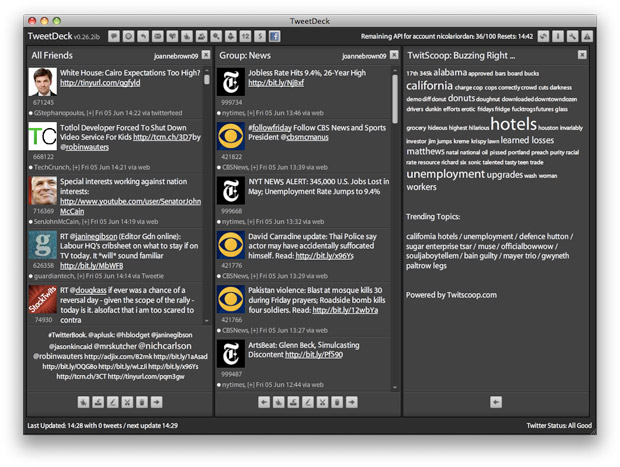
So, hotshot, you think just because you follow 300+ people on Twitter, thanks to Tweetdeck, that you’re some sort of super-duper Information Age sage? Slow down, because a recent study, coming out of Stanford, says that multitaskers are no better at processing or retaining information than single-minded non-multitaskers. If you’re trying to process and retain information, then, best to stick to one task at a time.
The study, carried out by a group of researchers at Stanford, looked at 100 students, some who were multitaskers, some who weren’t. Researchers put the students through of series of simple tests to see how well they were able to concentrate and recall information. Things like, “Here’s some numbers and here’s some letters. Pick the letter. Now tell us if it’s a vowel or consonant.”
Looking at the resulting data, it turns out that the multitaskers, the people who claim to be able to follow hundreds of people on Twitter via Tweetdeck, performed horribly. Other tests, tests that attempted to measure students’ ability to recall information (distinct from their ability to process information, of course), also showed that multitaskers were rubbish.
Why is this happening? Says one of the researchers:
They couldn’t help thinking about the task they weren’t doing. The high multitaskers are always drawing from all the information in front of them. They can’t keep things separate in their minds.
What still isn’t clear is whether or not the constant multitasking is actually hindering people’s ability to process information, or if they’re born with an inability to process info.
And anecdotally, I agree 100 percent. I find that I have a horrid time, say, listening to music and reading. I can either focus on the words on the page (or screen) or the sounds coming out of the headphones. Otherwise, one detracts from my ability to understand the other.